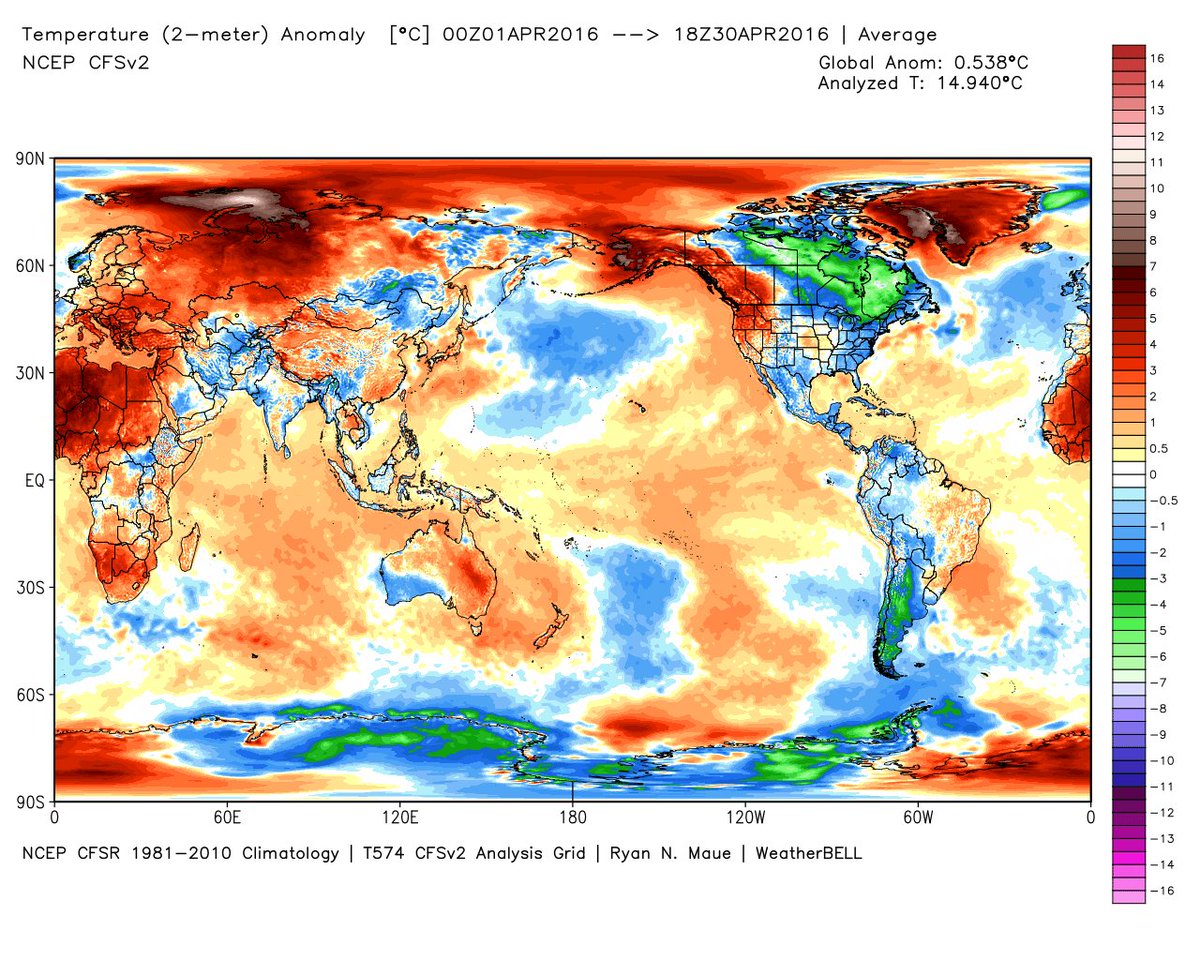NASA
temperature data shows last month was hottest April on record
14
May, 2016
It
is hot. And it is only going to get hotter
New
data released by Nasa revealed
that last month was the hottest April on record
The
information released by the US National Aeronautics and Space
Administration on Saturday showed that April 2016 was the sixth month
in a row to be more than one per cent above the 1951-1980 average.
My NASAGISS estimate back on May 2 was a little high (1.19 vs 1.11), but new record April was an easy call.
The
April figures continued the remarkably warm start to 2016, with each
month among a handful over the most abnormally hot months in more
than 130 years of global figures.
Indeed,
one expert said he believed that new data due to be released
next week by the National Oceanic and Atmospheric Administration will
show the last 12 consecutive months all broke records.
Eric
Holthaus is a meteorologist who writes for Slate,
told The
Independent:
“It’s scary. I’m at the point where I don’t know what will
happen next. We knew an El Nino would impact things, but I don’t
think anyone expected this jump.”
NASA's latest climate data is out, April 2016 warmest on record: http://data.giss.nasa.gov/gistemp/tabledata_v3/GLB.Ts+dSST.txt …
5:21 AM - 15 May 2016
He
said the increases measured by experts around the world meant that
within the last year, global temperatures had increased by 25 per
cent of the total increase since the 1880s.
He
said the rising temperatures were having very real impacts on the
environment.
He
said he expected that sea ice levels will be found to be at an all
time low this summer. Meanwhile, within the last 18 months, around
one quarter of all coral colonies in the oceans had suffered
bleaching as a result of warmer water and increased acidification.
In
such circumstances, the
corals expel the algae living in their tissues and
turn white. While coral can recover from such events, it is very
often fatal.
Mr
Holthaus said he expected the record temperatures to continue for
between four to six months, at which point they would begin to level
out.
A
vast majority of experts believe that human activity is having a
serious impact on the changes in the planet's climate. The Fifth
Assessment Report of the United Nations Intergovernmental Panel on
Climate Change (IPCC) said in 2014 that
there was a clear evidence human influence.
It
said warming of the atmosphere and ocean system was unequivocal. Many
of the associated impacts such as sea level change, had occurred
since 1950 at rates unprecedented in the historical record.




 Eric Holthaus
Eric Holthaus








 samim
samim







No comments:
Post a Comment
Note: only a member of this blog may post a comment.